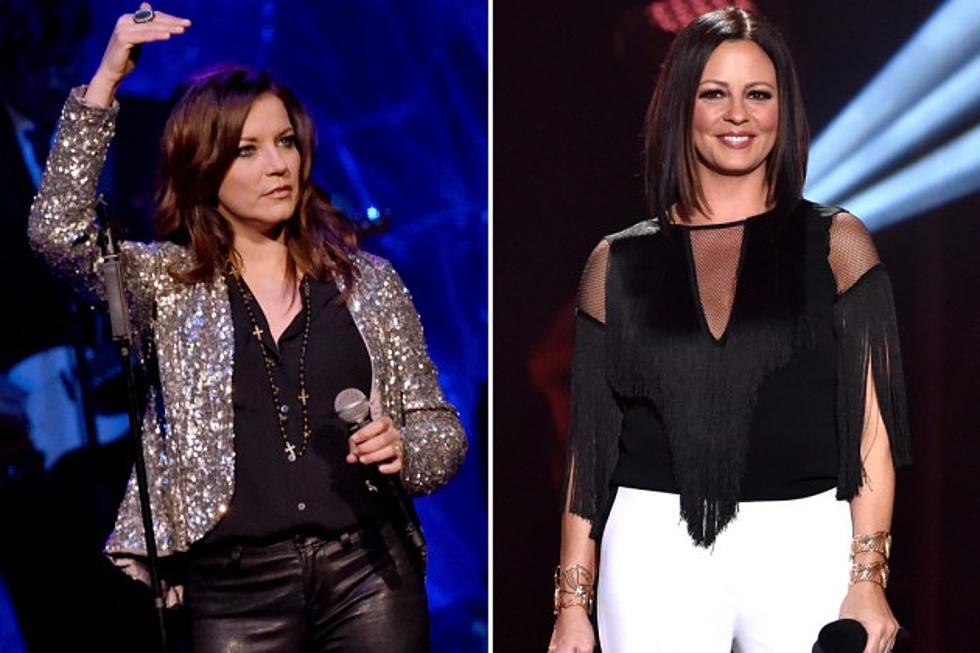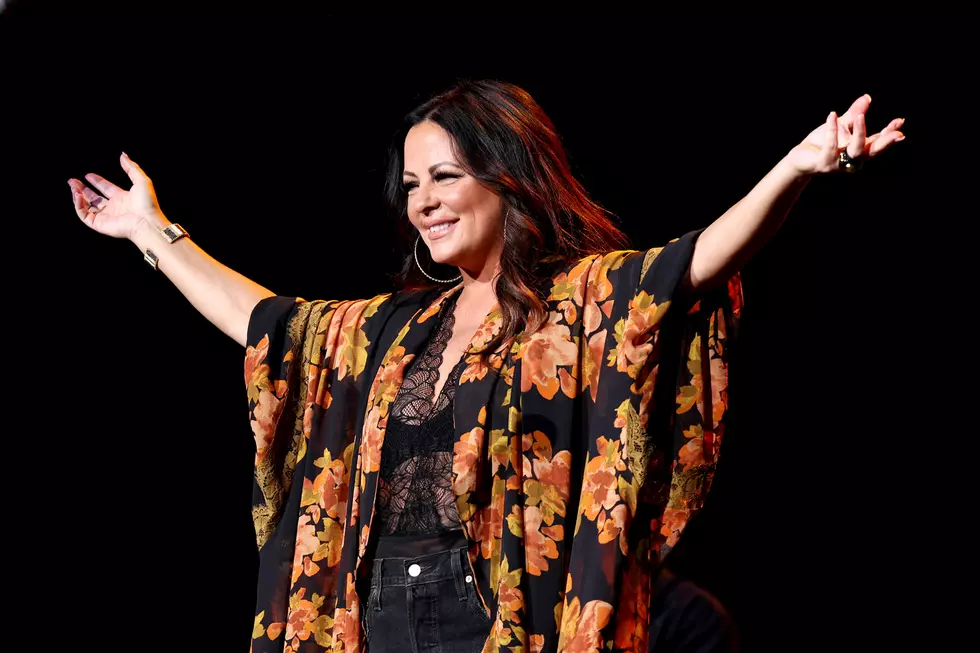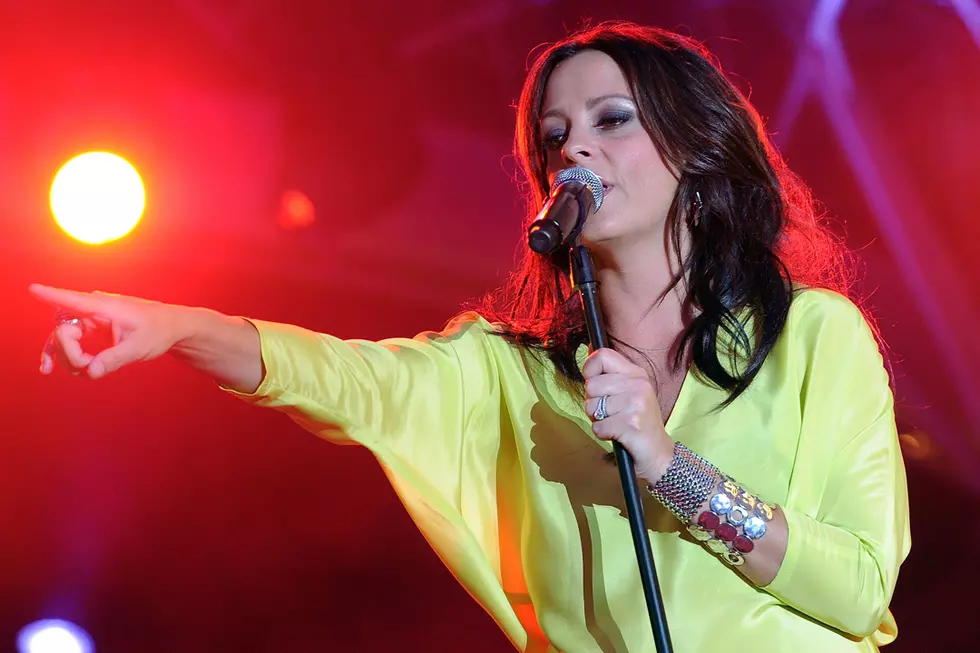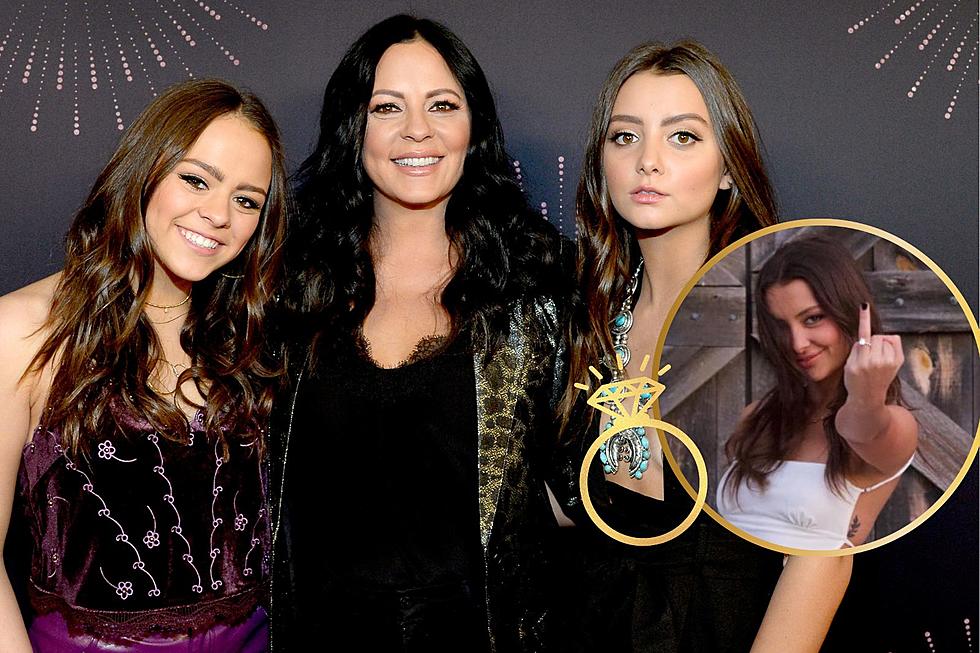
Tomatoes Martina McBride and Sara Evans Still Fired Up About Keith Hill’s Comments
Country music's female voices are not backing down in the wake of the #SaladGate debacle, when a radio consultant suggested stations should remove back-to-back female artists from their playlists to boost ratings, said female listeners only want to hear male singers and used the curious metaphor of women as tomatoes (garnishes to be used sparingly) in the wider country music salad.
Martina McBride opened the conversation up to her fans on Facebook right away, Jennifer Nettles responded on Twitter and Miranda Lambert called "bulls---."
But now, weeks after the comments were made, the story refuses to go away. Sara Evans was visiting family when then flap began, and now she's weighed in, too.
“I’ve been very outspoken on this topic over the past few years and STRONGLY believe that there should be a better balance of the songs played on country radio,” Evans posted on Facebook.
And McBride — the unofficial leader of the tomato movement — went on CBS This Morning Tuesday (June 2) to take her message to an even wider audience.
"I just think it’s dismissive, to be honest, to say that females don’t like hearing other females on the radio," she explains. "Obviously there have been females that have had a lot of success with songs that other female listeners relate to and connect with."
She reasons that ideas like that are bad for country music as a whole. "It just kind of becomes this self-fulfilling prophecy," says McBride, "And it’s a really dangerous kind of statement to just make a blanket statement like that."
McBride also added that she was disappointed fans haven't seen more male artists standing up for their female counterparts, but said she understands how much is at stake, given country radio's power to make or break careers.
Later on, she addressed the topic again on her Facebook page.
"I want to thank CBS This Morning for having me on today," she writes, "But there are a few things I forgot to say. ... I feel like whether or not a song gets airplay should be based on how good the SONG is ... not whether or not it's sung by a male or female. It's kind of like comparing tall artists to short artists, blondes to brunettes, bald guys to guys with hair ... what does it matter?
"The idea about not playing two females back to back ... I get it. If you have less than 19% of your music by females, you want to spread it out. The real point is ... why is your playlist less than 19% females???" she continues. "In regard to the comments being sexist. Hmm ... that can be tricky. It seems to me that if a song is not played because of the sex of the artist ... it might just fall into the sexist category."
Then McBride lowered the boom, so to speak, laying out exactly how damaging the marginalization of females can be — not only for country artists, but fans as well.
"As far as what I said about this being a self-fulfilling prophecy ... it's a fact that if female artists start out with this kind of discrimination (I can't really think of a more appropriate word) then it's harder to get record companies to take chances on signing and marketing a female artist," she explains. "And songwriters need to make a living at the end of the day just like everyone else. They want and need hits. And if the percentage of female hits each year is as small as it is ... well, then the chances of songwriters spending time writing great songs for women go way down. I know that the song finding process has been much different for me this time around (I start my new album this week) than it was last time around. There just aren't a ton of great songs to choose from."
"So ... at the end of the day, I'm glad these comments were made and some things were brought to light. If you feel strongly about hearing more women on your radio station I would suggest you let your radio station know how you feel."
Startling Facts About Women and Country Music
More From Taste of Country









